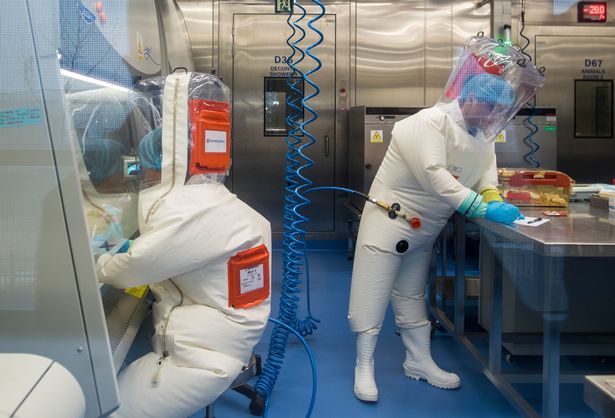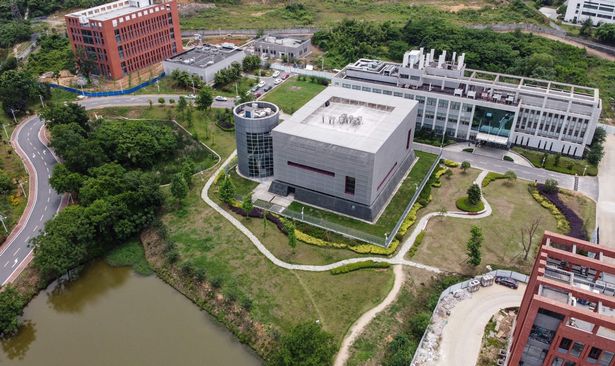A group of leading scientists has said the possibility that coronavirus accidentally escaped from the Wuhan lab in China “remains viable”.
In a letter published in the journal Science, 18 researchers from Stanford, Harvard, MIT and Cambridge blasted the World Health Organization (WHO) and scientists who followed it for failing to consider that there may have may been an “accidental” lab escape of the virus.
The Wuhan Institute of Virology is where the case of coronavirus was first detected in December 2019.
But a WHO task force spent four weeks investigating the outbreak in Wuhan in January and February and concluded it was “extremely unlikely” that it was caused by a lab leak.

(Image: AFP via Getty Images)
It instead found there was more chance the outbreak occurred due to “zoonotic spillover” from bats to humans through another animals.
Covid-19, which emerged in China in late 2019, has killed 3.34 million people, cost the world trillions of dollars in lost income and upended normal life for billions of people.
The latest letter said the WHO investigation didn’t make a “balanced consideration” of the theory that it may have come from the Wuhan lab and called for a “proper investigation” into the matter.

(Image: AFP via Getty Images)
“We must take hypotheses about both natural and laboratory spillovers seriously until we have sufficient data,” the letter reads.
“In this time of unfortunate anti-Asian sentiment in some countries, we note that at the beginning of the pandemic, it was Chinese doctors, scientists, journalists, and citizens who shared with the world crucial information about the spread of the virus—often at great personal cost.”
David Relman, the Stanford microbiologist who organised the letter, said: “We know that laboratory accidents happen far more often than anyone would like to admit.”

(Image: AFP via Getty Images)
“And that includes the very best labs, including those here in the United States.”
He goes on saying: “Theories of accidental release from a lab and zoonotic spillover both remain viable.”
The WHO task force investigating the origin of the virus said in March that it was probably transmitted from bats to humans through another animal.
It was further reported that the facilities had “high-quality biosafety levels”, and there had been no reports of similar illnesses among staff during the months before the pandemic hit.
Employees had also not tested positive for Covid in subsequent blood screening for antibodies, the report said.
“In view of the above, a laboratory origin of the pandemic was considered to be extremely unlikely,” it said.


